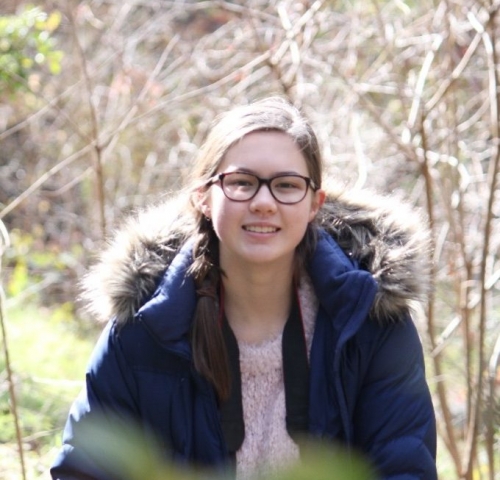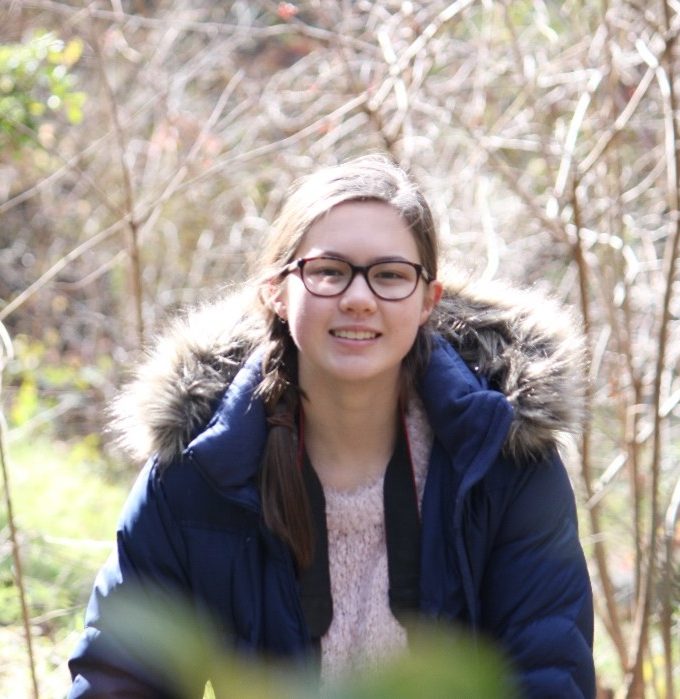
Vivienne Niejalke
The University of Adelaide
Vivienne Niejalke completed her Bachelor of Mathematical Sciences (Advanced) with a double major in Applied Mathematics and Statistics at the University of Adelaide in 2022. This year, she is commencing her Master of Philosophy in Mathematical Sciences where she will undertake research in nonlinear filters and optimisation for IoT technology using satellite data. Outside of her degree, she is involved in the Women in STEM Society (WISTEMS) which aims to build a fun and inclusive social network for women and minorities in STEM and raise awareness of diversity issues in STEM fields.
Can you give me a quick rundown about the type of mathematics you are studying and its potential impacts for the broader community?
I am about to commence research into nonlinear filters and optimisation in relation to object tracking. This research aims to use satellite data (not including GPS) to determine the location of modules that collect data for various industries including agriculture, transport, and defence. This research will hopefully increase the accessibility to internet of things (IoT) connectivity and allow for more data to be collected to aid research and knowledge in different disciplines.
How did you get into mathematics? Was there someone or something that inspired you into this field?
I have always loved solving problems, especially those that include maths and patterns. After discovering there was a degree specifically for mathematics, I decided to pursue my favourite high school subject at university. I like the diversity of applications for mathematics and the positive impact research in this field can have for our society.
You received a Travel Grant to attend AMSI Summer School 2023. How important was this in terms of your ability to attend, fully participate in the program and meet others studying in similar fields?
The travel grant was critical for me as it allowed me to attend and fully participate in AMSI Summer School 2023. The opportunity to participate in-person for the first two weeks was invaluable because I was able to make friends with many other people studying in similar fields. It also allowed me to attend and make the most of the program extras.
What was the most valuable part of the program for you?
My favourite part was meeting many people who have similar interests! Being part of a small cohort at my university means you do not often get to meet many others who are studying mathematics because they love it. The program allowed me to study fascinating math topics, such as spatial statistics, that I would not be able to undertake at my home institution.
In the long-term, what do you think are the benefits of having attended Summer School?
I think the most important long-term benefit of attending in-person has been the connections. It is cool to now have friends all around Australia who enjoy mathematics, and I can see this being very useful in the future when we may need to share ideas and collaborate on research together.
Summer School included a special Careers Day program which aims to help give students an idea of the kinds of career paths available to maths graduates in industry and private sector research areas. Were you previously aware of the types of industry opportunities available to mathematical science graduates?
Prior to Summer School, I have gained industry experience in the space and defence sector through internships. After listening to the guest speakers at Careers Day, I believe I have a greater awareness of the types of maths used across other industries, including areas I didn’t consider would hire math graduates. I am still interested in pursuing a research career in industry after my MPhil.
What advice would you give to someone who is considering applying for Summer School in 2024? Should they apply and why?
Just apply for it! This is an incredible opportunity to explore maths at a higher level and make valuable connections.
Where do you want the mathematical sciences to take you? Where do you see yourself in five, ten years time?
I enjoy solving challenging yet important questions that will help us understand our world better and make a positive impact. I have enjoyed developing models in the space and defence sector so far, but I would also be interested in solving network and climate change problems and exploring data science applications in the future. I do not know exactly where I will be in five or ten years’ time, but I do know I want to develop models for important problems and conduct research in mathematics and data science to gain crucial understandings.

